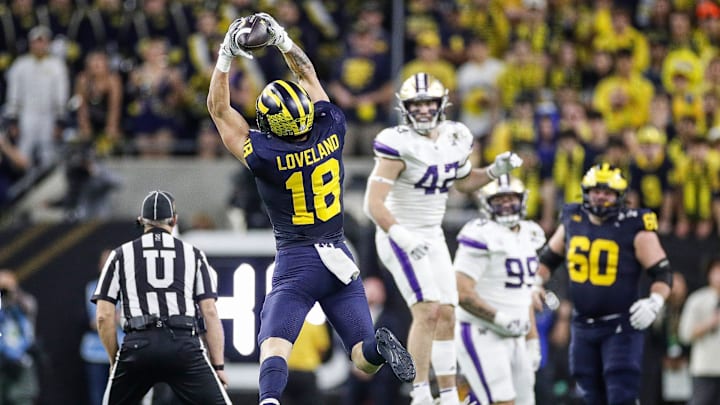We're in the midst of uncertain times for college athletics.
Players are now being compensated through NIL, both with endorsement deals and school collectives, effectively creating a "pay for play" model that has no current regulations. Players are also now capable of moving freely from one program to the next with immediate eligibility, a factor that when combined with potential NIL earnings, has created free agency that is, again, unregulated.
All the while, mega television contracts and conference realignment has blown up the fabric of college sports as we know them, especially in football. All but a few of the sport's best programs now reside within the SEC and Big Ten, Florida State and Clemson are suing to get out of the ACC, the Big 12, while expanded, is a shell of its former self, and the Pac-12 is soon to be officially dead.
College football will already be drastically different than what we've previously known this fall, but it's rapidly trending towards being completely unrecognizable in the worst possible ways in the near future.
One group is looking to save college football from itself.
NEW: A group of sports execs and college presidents is proposing a football “Super League” of 80 schools, to pay players, collectively bargain and increase revenue.
— Stewart Mandel (@slmandel) April 3, 2024
“The current model for college athletics is dead.”
Story by @AndrewMarchand and me.https://t.co/sffsolyhrO
In the proposed model, the current conference structure of college football would be eliminated. Instead, all members of the old "Power 5" leagues plus Notre Dame and new ACC-member SMU would make up a 70-team upper-tier that would be split into seven 10-team divisions. Those 70 programs would be locked into their divisions with each division winner earning a playoff spot.
All remaining current FBS programs would make up a lower-tier. But to keep the entire FBS intertwined, an eighth division would exist consisting of the very best lower-tier programs. All lower-tier programs would have the ability to play their way in or out of that division through a promotion and relegation system.
The winner of the eight division would also earn a playoff spot, as would eight wildcard teams made up of upper-tier programs whose selection would be determined by record and tiebreakers as opposed to being voted on by a committee.
Furthermore, the proposed Super League would create a structure for players to be paid directly and earn salaries. It would feature collective bargaining to reach agreements with players on those salaries as well as regulations for transferring.
Essentially, the Super League aims to create a pro-sports model for college football while still keeping the entirety of the FBS involved and embracing traditional regional rivalries through divisions. It would be a way to move the sport into its inevitable future but pay homage to the things that set CFB apart.
Would that be the best path forward for college football? There are some clear positives to the model, but according to Mandel's and Marchand's reporting, conferences aren't exactly eager to hear College Sports Tomorrow out on the idea. Using the model would mean the end of conferences individually negotiating TV deals, and with each of these leagues locked into contracts for the near future, they aren't looking to upset the networks currently throwing billions at them.
Regardless, further change in college football and college athletics as a whole is inevitable. A proper solution for navigating those changes without totally destroying the sport we know and love is badly needed. And maybe this is it.
